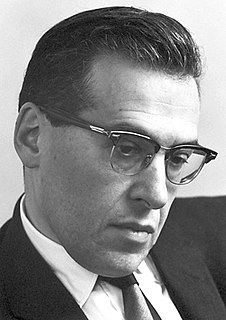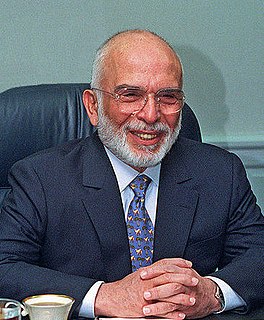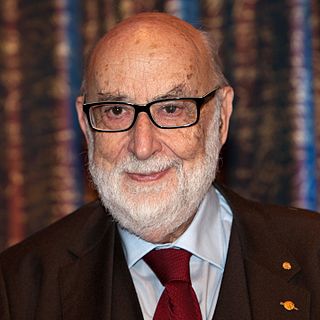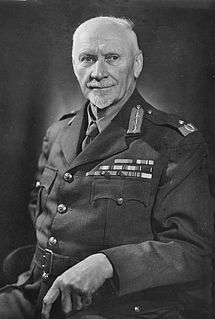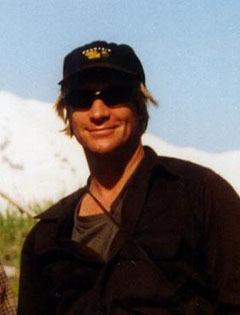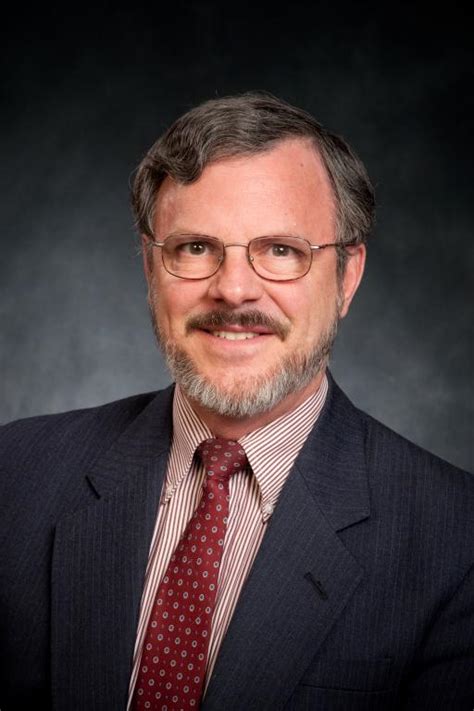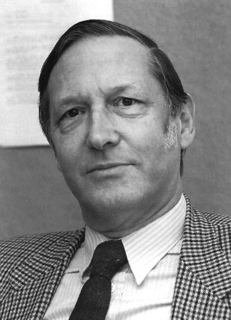A Quote by Julian Schwinger
Is the purpose of theoretical physics to be no more than a cataloging of all the things that can happen when particles interact with each other and seperate? Or is it to be an understanding at a deeper level in which there are things that are not directly observable (as the underlying quantized fields are) but in terms of which we shall have a more fundamental understanding?
Related Quotes
There is an Arabic proverb which says that "Peace comes from understanding, not agreement." Agreements are more easily broken than made; but understanding never. It is urgent, therefore, and in the interest of peace, that there be better understanding among nations. As people we are one, seeking the same goal. As nations, we lose each other down the different paths we choose to fulfill our national objectives. that is why we must understand each other better.
I have tried to read philosophers of all ages and have found many illuminating ideas but no steady progress toward deeper knowledge and understanding. Science, however, gives me the feeling of steady progress: I am convinced that theoretical physics is actual philosophy. It has revolutionized fundamental concepts, e.g., about space and time (relativity), about causality (quantum theory), and about substance and matter (atomistics), and it has taught us new methods of thinking (complementarity) which are applicable far beyond physics.
The universe does not exist 'out there,' independent of us. We are inescapably involved in bringing about that which appears to be happening. We are not only observers. We are participators. In some strange sense, this is a participatory universe. Physics is no longer satisfied with insights only into particles, fields of force, into geometry, or even into time and space. Today we demand of physics some understanding of existence itself.
Now with the allocation and the understanding of the lack of understanding, we enter into a new era of science in which we feel nothing more than so much so as to say that those within themselves, comporary or non-comporary, will figuratively figure into the folding of our non-understanding and our partial understanding to the networks of which we all draw our source and conclusions from.
Alchemy and Kabbalah are later developments in my thinking. I think the primary interest has been the relationship of magic and mystery to logic and understanding. Those are the primary driving forces of my life. I have this ability, for some reason, to be able to hold both the Magical MysteryTour we're on in conjunction with the logical rigor of understanding theoretical physics, which makes me kind of a rare bird, because usually you're one or the other.
The general notions about human understanding...which are illustrated by discoveries in atomic physics are not in the nature of things wholly unfamiliar, wholly unheard of, or new. Even in our own culture, they have a history, and in Buddhist and Hindu thought a more considerable and central place. What we shall find is an exemplification, an encouragement, and a refinement of old wisdom.
I have done here on earth that was necessary to be done, no matter what my expression or application and now I continue to live here in the dimensions where I'm experiencing/expressing a deeper level of understanding and awareness of my reason and purpose here on earth, which is wonderful and for which I am grateful for.
In addition to all of the ratios and goals and parameters and bottom lines, it is fundamental that leaders endorse a concept of persons. This begins with an understanding of the diversity of people's gifts and talents and skills. Recognizing diversity gives us the chance to provide meaning, fulfillment and purpose, which are not to be relegated solely to private life any more than such things as love, beauty and joy. The art of leadership lies in polishing and liberating and enabling those gifts.
...God does not possess a private knowledge of Himself and a separate knowledge of all the creatures in common. The universal Cause, by knowing Itself, can hardly be ignorant of the things which proceed from It and of which It is the source. This, then, is how God knows all things, not by understanding things, but by understanding Himself.
